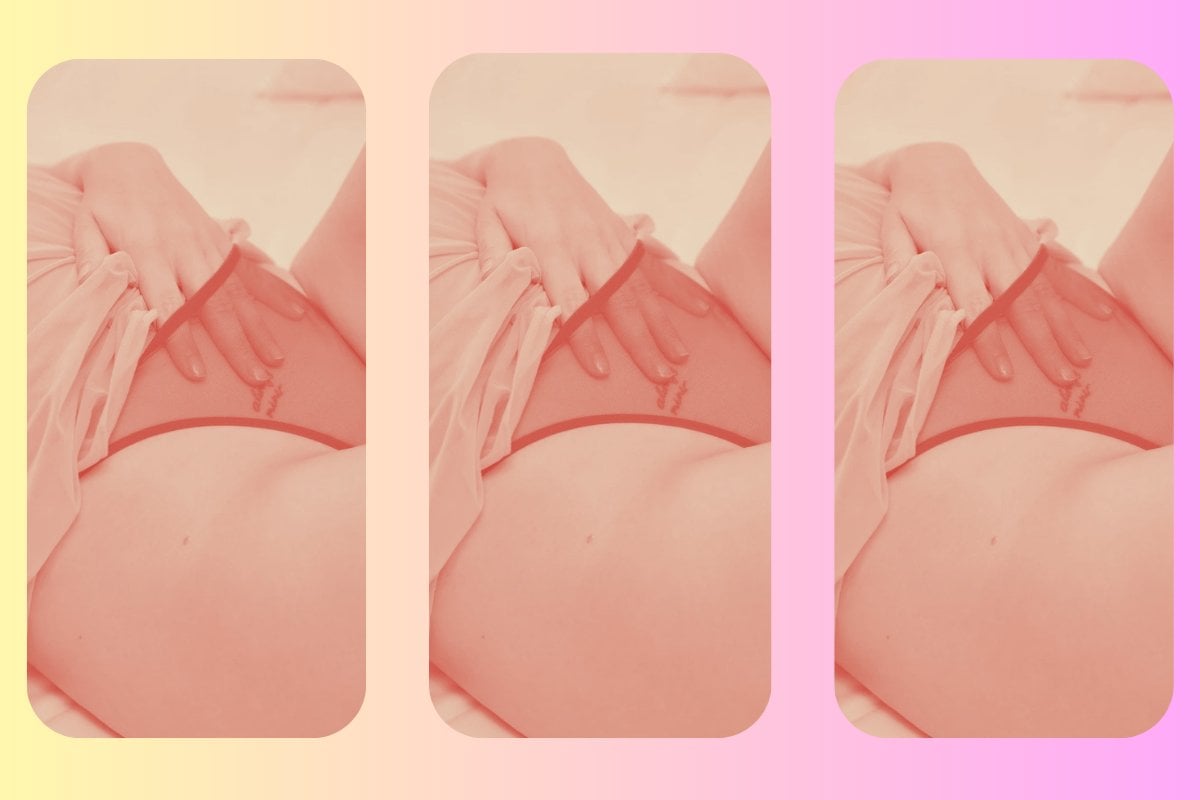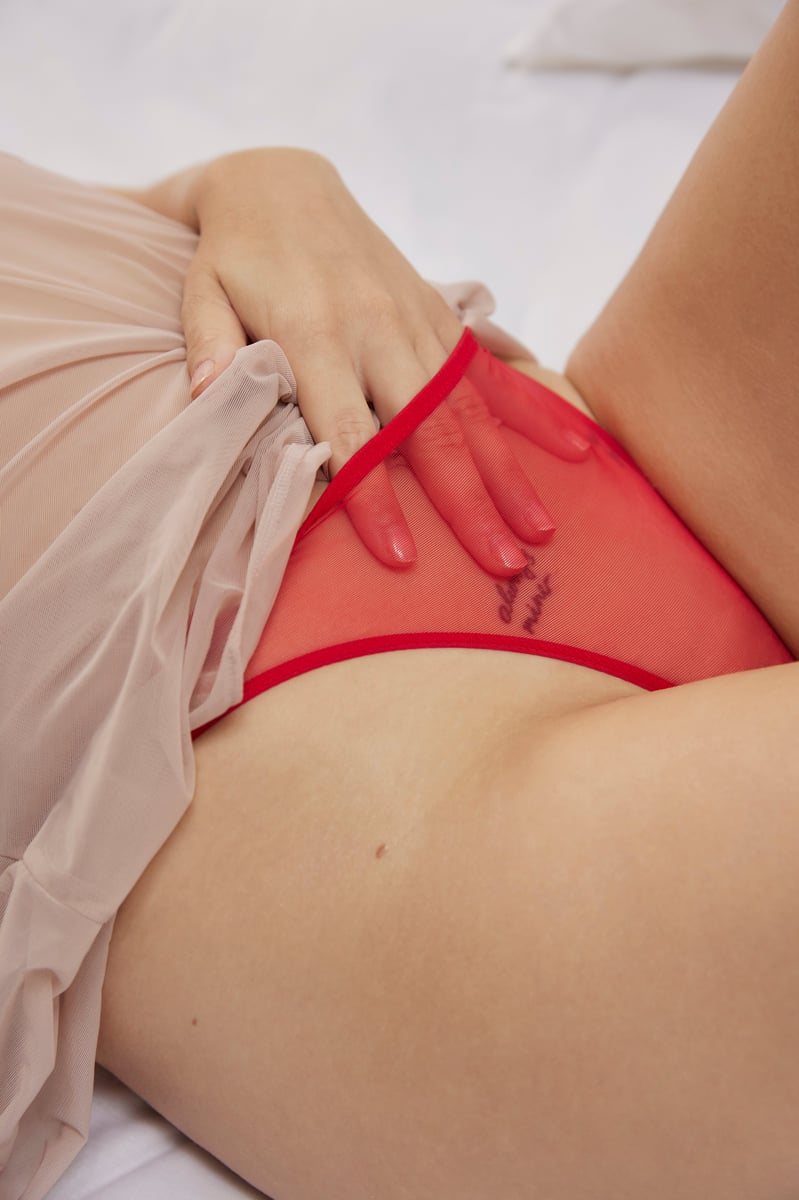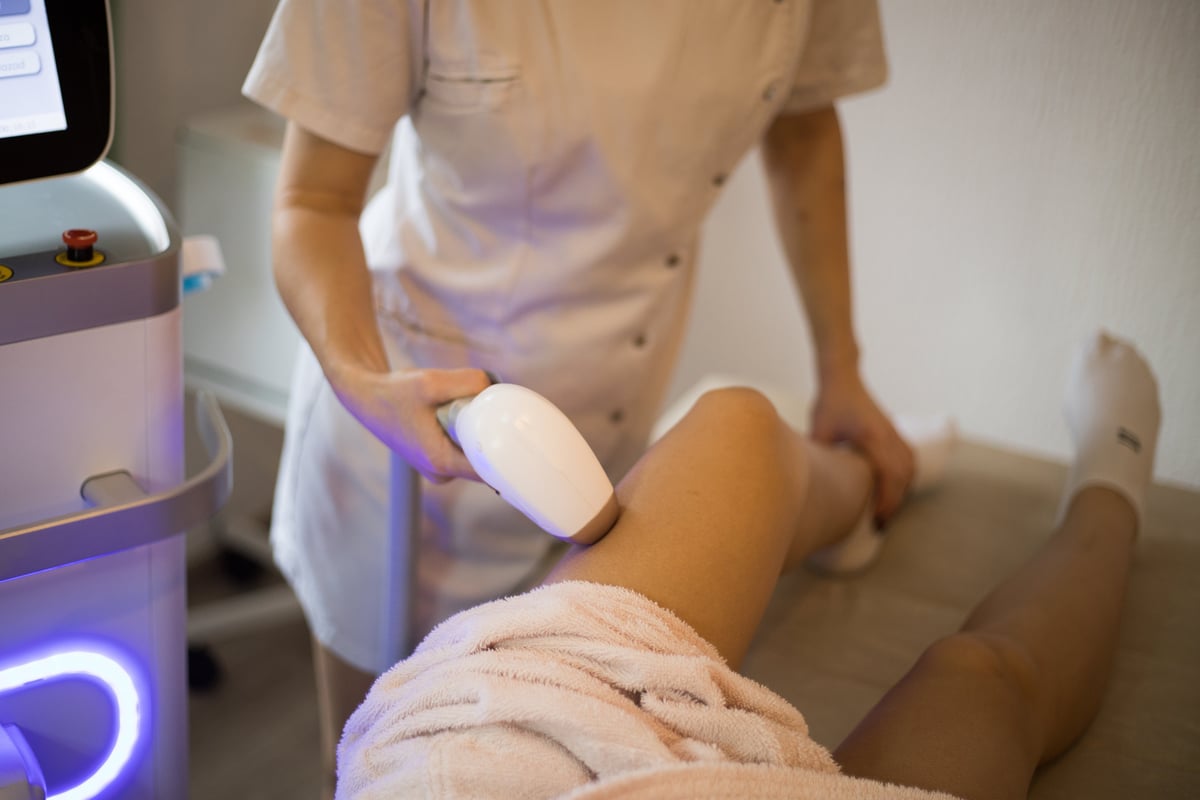
Much like with fashion, pubic hair (or the lack of it) has changed with the times.
“Removing all pubic hair has really been popularised since the advent of the Brazilian wax of the 1990s,” Dr Raelia Lew, a leading gynaecologist, told Mamamia. But she says over the last 10 years there’s been an obvious shift.
“When I started my career, most people had pubic hair and somewhere over the last decade there’s been a very noticeable change in the fashion, so to speak.
“It went from a landing strip to a bald eagle and now it’s permanently gone.”
Watch: The hairy history of pubic hair. Post continues after video.
Yes, permanently. For good. Because thanks to the joys of modern technology, laser hair removal is helping women to reclaim that fresh faced look, uh, down there by getting deep into the follicle and targeting the pigments inside.
From someone who once cried during a waxing appointment when the beautician yelled “IT ISN’T NICE FOR ME EITHER NOW STOP SQUIRMING”, laser hair removal has been an absolute dream. A literal breath of fresh air on my now completely bare skin. And I’ve never looked back (unless it’s to admire the technician's handiwork).


